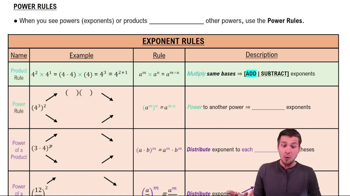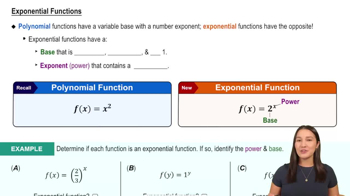60–81. Limits Evaluate the following limits. Use l’Hôpital’s Rule when needed.
lim_x→∞ ln ((x +1) / (x-1))
 Verified step by step guidance
Verified step by step guidance Verified video answer for a similar problem:
Verified video answer for a similar problem:



 5:53m
5:53mMaster Finding Differentials with a bite sized video explanation from Patrick
Start learning